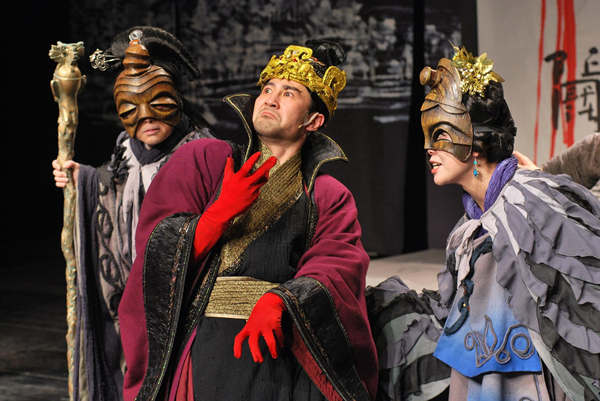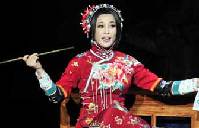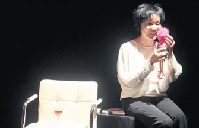China for the senses
By Amy He ( China Daily ) Updated: 2014-02-21 10:58:54 |
|
The National Theater of China will perform a Chinese production of William Shakespeare's Richard III at New York University. Photo Provided to China Daily |
For the 35th anniversary of the United States and China establishing diplomatic ties, and in celebration of the opening of its Shanghai campus, New York University is celebrating China by spotlighting the country's performance arts in the school's annual Visions + Voices program.
 |
 |
For the next three months, NYU's Skirball performing arts center will present a number of Chinese stage performances, including TAO Dance Theater's contemporary dance and the National Theater of China's US debut of a Chinese production of William Shakespeare's Richard III.
"Each year Visions + Voices gives us the opportunity to explore and highlight the culture and creativity from a featured local within NYU's global network," says Michael Harrington, executive director of the Skirball Center. "This year's Chinese artists and performers will showcase numerous works never before seen in America, and we are thrilled to present them here in New York and offer opportunities for cultural discovery and understanding."
This year's series also features performances by the Hangzhou Yueju Opera Company of renditions of two Ibsen plays, a screening of Zhang Meng's The Piano in a Factory, and the NYU Symphony Orchestra in a performance of composer Tan Dun's The Map.
Bringing a series of Chinese performances to New York for a college-aged audience involved more than a year of preparation, according to Harrington. He says the school wants to bring in works that would appeal to a young adult audience about 18 to 35 years old.
"Since we're located within the university, that's a key piece of demographic we try to serve," he says. "We want to bring in a dance piece that's going to engage political science students and a theater piece that's going to engage the law school or business students."
Two of the shows will feature Chinese renditions of Western stories, which some audiences may not be used to, but Harrington says he is optimistic about their reception.
"Our job is to close that (culture) gap," he says. "We want to try to encourage people to get outside of their comfort zones, and while this stuff may seem a bit outside of their comfort zones, I think our goal is to bring in an audience that is willing to take a chance. And I think they'll have a positive experience."
|
|
|
|
|
|
|
|





















 Raymond Zhou:
Raymond Zhou: Pauline D Loh:
Pauline D Loh: Hot Pot
Hot Pot Eco China
Eco China China Dream
China Dream China Face
China Face





